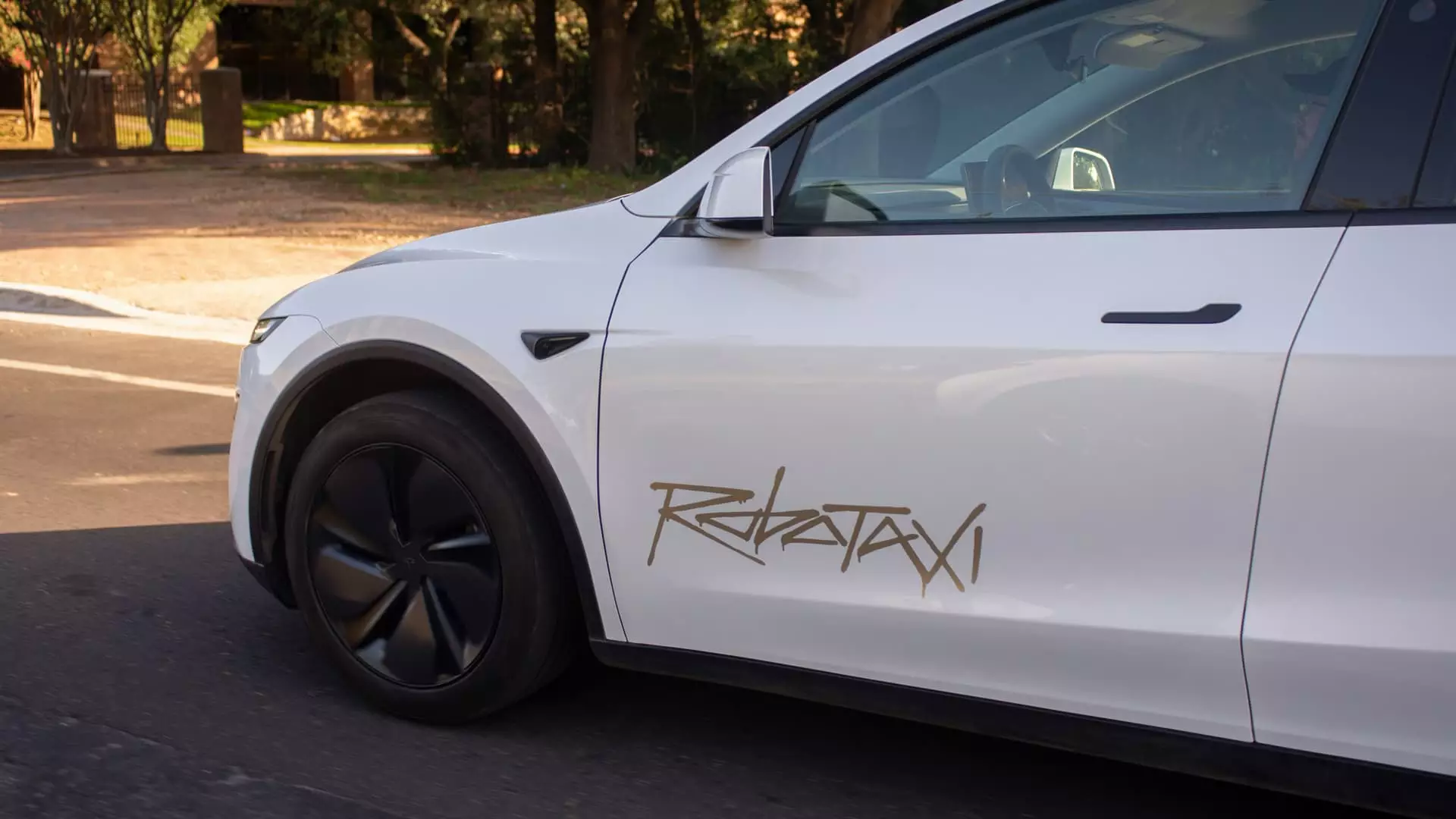The excitement surrounding Tesla’s adventurous foray into autonomous rides with its Model Y robotaxi cannot be understated. Reports flooded social media, showcasing ride experiences that seemingly danced around perfection. Shares of the electric vehicle powerhouse surged by 10% following the debut, creating an illusion of unshakeable success. However, beneath this superficial veneer, a complex reservoir of implications, challenges, and ethical dilemmas surfaces—a mix that demands a critical examination of what this launch could mean for the future of transportation.
On a fateful Sunday in Austin, Texas, a selective group of enthusiasts and shareholders embarked on a novel riding experience. Touted for their unwavering loyalty to Tesla and CEO Elon Musk, these early adopters were charged a mere flat fee of $4.20 per ride—an eye-catching price point that is symbolic of Musk’s unorthodox brand strategy. While the positives of successful rides touted on social platforms paint a rosy picture, a closer look reveals some worrying tendencies. Reports emerged of robotaxis flouting traffic regulations and exhibiting erratic behavior, such as prematurely halting in response to police presence—raising the question of whether this rush to innovate is jeopardizing public safety.
A Daring Leap or Reckless Gamble?
Elon Musk has always been a master of spectacle, often intertwining grand promises with a sense of urgency that forces innovation to the forefront. Yet, in this relentless race to deliver self-driving capability, the stakes have surged. The Model Y launch may signal a strategic maneuver to reinforce Tesla’s place within a rapidly evolving market where competitors like Waymo and China’s Apollo Go are outrunning them in terms of rides already given. As Musk boldly asserts the ambition to have “hundreds of thousands, if not over a million” self-driving cars on American roads by next year, one must ponder whether this enthusiasm is built on solid groundwork or merely aspirational jargon.
Critics have pointed out that the excitement surrounding this launch may, in part, stem from a well-orchestrated PR campaign rather than genuine consumer benefit. Pre-validation through handpicked riders—individuals who are inherently biased due to their affiliations with Tesla—serves to create an echo chamber that amplifies favorable feedback while silencing dissent. Moreover, facing pressure from Democrats and public safety advocates who called for halting the launch, Tesla’s decision to proceed raises ethical questions about corporate responsibility versus consumer demand.
The Shadow of Regulation and Ethical Considerations
As this new chapter in transportation unfolds, it’s vital to confront the implications of unregulated technological advancements. The allure of hands-free driving comes laden with potential hazards, and the unsettling truth is that Tesla’s rollout resembles a live experiment on public roads. The push for unfettered innovation overlooks the critical aspect of regulatory oversight—essentially a gamble with lives at stake. There’s a fine line between being a pioneer and being reckless, and Tesla seems to be test-driving its way dangerously close to the latter.
Recent data linking Tesla’s automated cars to tragic accidents highlights a darker underbelly of this hype. As the National Highway Traffic Safety Administration (NHTSA) has recorded fatal incidents connected to Tesla’s driving systems, the company’s insistence on employing partially automated driving features raises moral quandaries. Is it right to thrust the public into a world where technology is not fully battle-tested, especially when lives are on the line?
Furthermore, the exclusivity of the early access platform brings an unsettling socio-economic dimension to this discussion. By prioritizing Tesla promoters and shareholders for initial rides, one must question if this practice promotes a model of slackening accountability. The resources funneled toward enticing influencers and fans signal a commercial rather than a consumer-centric initiative. Therefore, the apparent triumph of Tesla’s robotaxi launch could very well be an illusion, cloaked in self-serving narratives.
In a future where transportation becomes tightly knitted with artificial intelligence, it is imperative to safeguard ethical standards while fostering innovation. As Tesla touts its groundbreaking steps towards a self-driving destiny, the conversation must pivot toward ensuring that the road ahead is as safe as it is visionary.


Leave a Reply